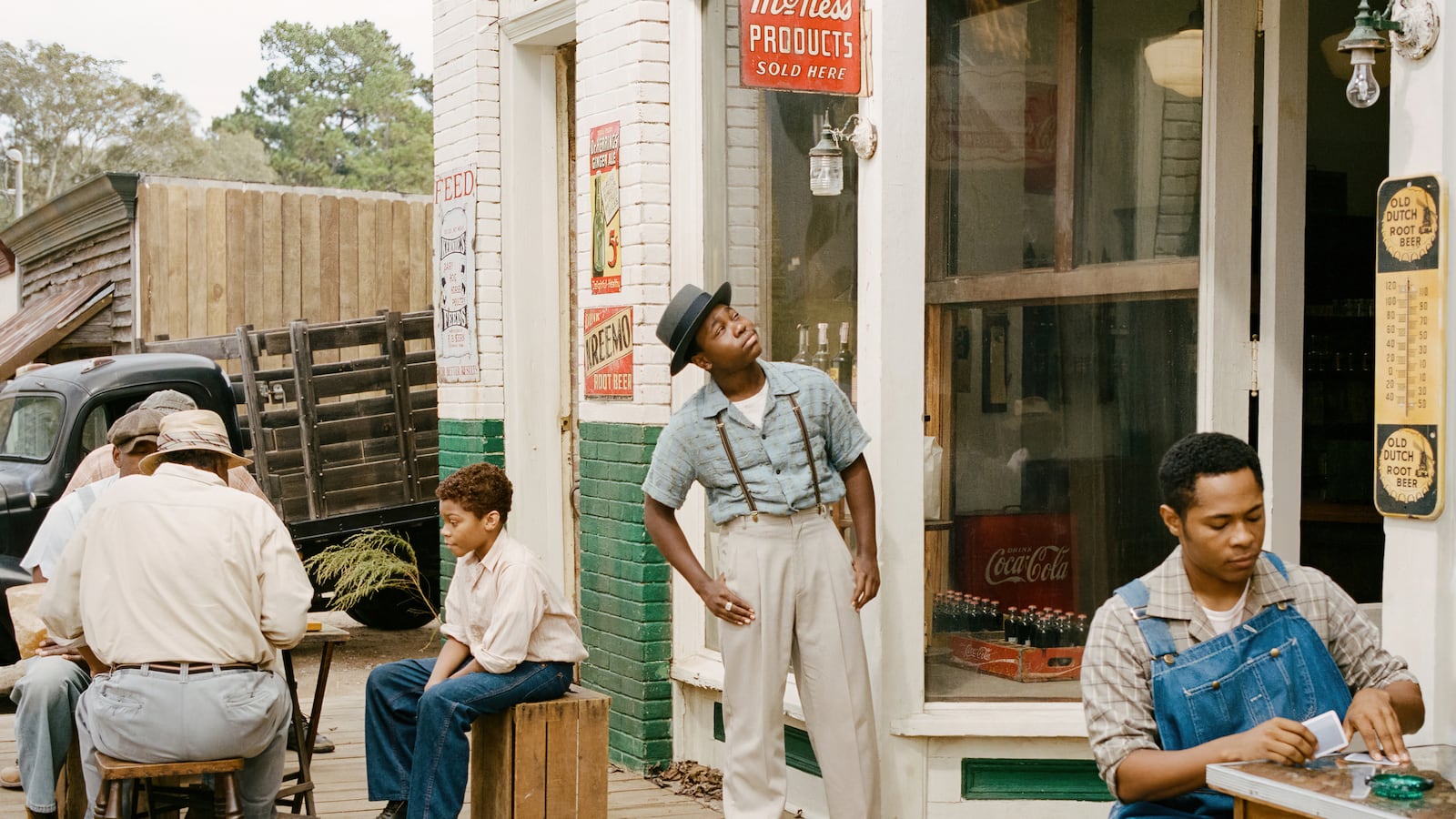The first trailer for the upcoming movie Till, based on the lynching of Emmett Till and his mother Mamie Till-Mobley’s quest for justice, has arrived to polarized reception from viewers who say they don’t want to watch another “Black trauma porn” movie.
The trailer is an obvious tearjerker: Based on the still terror-inducing 1955 murder, Till seems to follow the basic contours of the true story. Danielle Deadwyler narrates as Mamie Till, a single mom from Chicago who reluctantly allows her 14-year-old son Emmett (Jalyn Hall) to spend the summer with his cousins “working the fields” in the Mississippi Delta.
“Are you listening? Be small down there,” she cautions her jocular teenager, who tries to lighten the mood by walking around his room with his shoulders slumped.
The trailer even shows the heart-stopping moment when Emmett locks eyes with Carolyn Bryant Donham, the 21-year-old white shop clerk who wrongfully accused the teen of whistling at her, grabbing her hand and asking her out. In real life, Emmett was kidnapped from his great-uncle’s house and beaten and brutalized by Bryant’s husband and half-brother. He was shot in the head before his body was sunk in the Tallahatchie River.
The murder, as the movie goes on to show, kicked off a nationwide exploration of racism and the corrupt justice system in the Jim Crow South.
But Till will mostly focus on Mamie’s grief-tinged resilience. She’s outspoken about the death of her son, taking it upon herself to ensure that his death is not in vain by insisting on an open casket and delivering a speech that touches on the ideas of Pan-Africanism.
“The lynching of my son has shown me that what happens to any of us anywhere in the world had better be the business of us all,” she says to a crowd.
All of this happened in the mid-1950s before the civil rights movement began in earnest, making it all the more courageous that a Black woman was speaking out.
It’s an empathetic first look treated with the gravity Till’s story deserves. But like many films about the painful and unjust treatment of Black people in America, Till does not appear to skimp on shots of Black women wailing or silently persevering through the pain. And unlike other movies, which are fictional but based on real atrocities, this one is about a true crime that got significant media attention at the time and continues to resonate.
“We did not need an Emmett Till movie,” wrote one Twitter user matter-of-factly, hours after the trailer was released. Emmett Till’s name also began to trend on the platform around the same time, both as discussion picked up and in honor of what would have been his 81st birthday.
Others worried about the target audience, especially after feel-good racial reconciliation movies like Green Book, which won the Oscar for Best Picture in 2019, have received increasing amounts of backlash in recent years.
“It was hella uncomfortable watching the trailer for the Emmitt Till movie in a theater full of white people,” said columnist and Syracuse University political science professor Jenn M. Jackson. “Black pain, death, and trauma have to stop being the plot device.”
Some critics came straight for the film’s Nigerian-American director, Chinonye Chukwu.
“Why is a woman born in Nigeria the writer and director on this Emmett Till movie? Besides that, we do not need anymore Black Trauma Porn movies that will most likely be filled with White Savior Propaganda,” wrote one Twitter user, including a photo of Chukwu.
Chukwu, who is best known for writing and directing the Alfre Woodard-led 2019 drama Clemency, appeared to predict some of the tough questions incurred by a movie this emotionally charged in a statement released alongside the trailer.
“When I was approached to write and direct a story about Emmett Till, I found myself drawn to a singular figure at the center of his orbit,” she wrote. “Mamie’s untold story is one of resilience and courage in the face of adversity and unspeakable devastation. For me, the opportunity to focus the film on Mamie, a multi-faceted Black woman, and peel back the layers on this particular chapter in her life, was a tall order I accepted with deep respect and responsibility.”
Time will tell how audiences respond to the full movie. But, it seems that some are understandably tired of stories of Black sorrow, especially when movies like Black Panther: Wakanda Forever, set to be released a few weeks after Till, are looking toward the future when it comes to Black lives on screen.
Till, which also stars Frankie Faison, Haley Bennett, and Whoopi Goldberg as Alma Carthan, will be released in selected theaters on Oct. 14 and everywhere else on Oct. 28.






